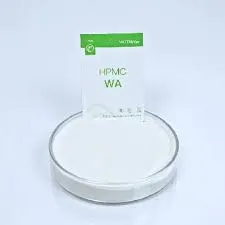
Nov . 15, 2024 23:12 Back to list
liquid thickener
The Role of Liquid Thickeners in Food and Beverage Industry
In the food and beverage industry, achieving the perfect texture is crucial to creating an enjoyable product. One of the most effective ways to enhance the texture and viscosity of liquids is through the use of liquid thickeners. These ingredients play a critical role in food preparation, contributing to the stability, mouthfeel, and overall quality of various consumables.
Understanding Liquid Thickeners
Liquid thickeners are substances that increase the viscosity of a liquid without substantially altering its other properties. They are commonly derived from natural or synthetic sources and can be used in a variety of applications—from sauces and soups to beverages and desserts. Some popular liquid thickeners include corn starch, xanthan gum, agar-agar, and guar gum, among others.
The choice of thickener often depends on the desired texture, the temperature of the food or beverage, and dietary restrictions. For instance, xanthan gum is favored in many gluten-free recipes due to its ability to mimic the texture of gluten, while agar-agar is a popular alternative to gelatin for vegetarian and vegan products.
Applications of Liquid Thickeners
Liquid thickeners serve a multitude of purposes in food and beverage production
1. Improving Texture Many consumers favor products with a smooth and creamy texture. Liquid thickeners help achieve this desired viscosity, creating a more palatable product. For example, a smoothie may be enhanced with a liquid thickener to achieve a consistent, drinkable texture that doesn’t separate.
2. Stabilizing Emulsions In products like salad dressings and sauces, liquid thickeners can help stabilize emulsions. When oil and water are combined, they tend to separate. By adding a liquid thickener, manufacturers can promote uniformity and prevent separation, ensuring a consistent product.
liquid thickener

3. Reducing Food Waste In the production of soups and sauces, liquid thickeners can help utilize otherwise diluted flavors. By increasing viscosity, manufacturers can deliver a more robust taste experience without the need for additional, often costly, ingredients.
4. Enhancing Shelf Life Many liquid thickeners contribute to the stability of a product, affecting its shelf life. A thicker consistency can reduce the likelihood of settling or separation, which can enhance the overall longevity of the product on retail shelves.
Consumer Trends and Health Considerations
As the demand for healthy and clean-label products rises, the selection of thickeners has become more scrutinized. Consumer preferences are shifting towards natural thickeners that do not contain artificial additives. This trend has led to an increase in the use of thickeners derived from plant sources, such as cassava and peas, which cater to the growing vegan and gluten-free markets.
Moreover, the health implications associated with certain thickeners are becoming a focal point. For example, some individuals may have sensitivities to specific gums, leading consumers to seek alternatives. The food industry is responding by diversifying its selection of thickeners to meet varying dietary needs.
Conclusion
Liquid thickeners are essential in the food and beverage industry, enhancing both the texture and quality of products. Their versatility and ability to stabilize emulsions make them invaluable in a variety of culinary applications. As consumer preferences shift towards healthier and more natural ingredients, the role of liquid thickeners continues to evolve.
In a fast-paced market, understanding the properties and applications of different thickeners provides a competitive edge. Whether creating a luscious dessert, a creamy dressing, or a refreshing beverage, liquid thickeners can significantly influence the consumer experience. As such, they will remain a key focus for innovation and development in the food industry, allowing manufacturers to meet the diverse demands of today's health-conscious consumers.
-
Versatile Hpmc Uses in Different Industries
NewsJun.19,2025
-
Redispersible Powder's Role in Enhancing Durability of Construction Products
NewsJun.19,2025
-
Hydroxyethyl Cellulose Applications Driving Green Industrial Processes
NewsJun.19,2025
-
Exploring Different Redispersible Polymer Powder
NewsJun.19,2025
-
Choosing the Right Mortar Bonding Agent
NewsJun.19,2025
-
Applications and Significance of China Hpmc in Modern Industries
NewsJun.19,2025







